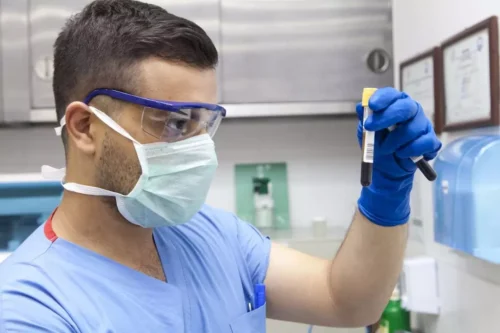
This is a very interesting article all I have to do is limit myself to 2 drinks on Saturday and I will be ok. Buying the single glass bottle of wine is easiest for me until I reset my mind does alcohol make you gain weight to only have this amount. Additionally, alcohol is a diuretic, meaning you lose more body water, so you’ll likely need to go to the bathroom more frequently and will often sweat more too.
- It’s also important for women who are trying to get pregnant, or who are pregnant or breastfeeding, to reduce or cut out alcohol altogether.
- In addition to those properties, vodka is quite the versatile alcoholic beverage, rendering it a good selection for pairing with mixers for a tasty drink that packs a punch.
- Eventually, you can develop permanent and irreversible scarring in your liver, which is called cirrhosis.
How Much Soju To Get Drunk? Read Before Drinking
This therapy may help you to manage stress or emotions that affect your eating habits. Having obesity can trigger heart disease, Type 2 diabetes and other medical conditions. All of these can lead https://ecosoberhouse.com/ to long-term weight gain and contribute to the bloating and digestive issues that cause weight gain after a night of drinking. Alcohol does not cause weight gain the same way eating a donut does.
How long does alcohol stop fat burning?

Although there is evidence to suggest that frequent alcohol intake may predispose to weight gain or obesity over the long-term, this effect is not strongly reflected in the recent research. First, it has been found that alcohol intake increases energy expenditure, likely due in part to the fact that it has a high thermogenic effect [53]. It has also been suggested that some of the energy ingested as alcohol is ‘wasted’, due to the activation of the inefficient hepatic microsomal ethanol-oxidizing system (MEOS).
What are the symptoms of overweight?

The MEOS is induced through chronic alcohol intake, and the level of induction increases with increased intake [54, 67]. Oxidation of alcohol via the MEOS produces less ATP than oxidation via alcohol dehydrogenase, using the energy from alcohol intake primarily to enhance heat production [37, 54]. The extent to which wasted energy from regular alcohol consumption contributes to weight gain prevention is unclear. That being said, alcohol in moderation can still be a part of a healthy and balanced lifestyle. Drinking a small amount of alcohol, like a glass of red wine or vodka with soda water, can be enjoyed without causing weight gain. It’s important to make smart choices regarding alcohol consumption and to be mindful of the number of calories per ounce or drink.
The Connection Between Alcohol and Weight Gain
Mixing a drink with sodas or sweetened juices can also add calories. Consuming several alcoholic drinks can lead to a high calorie intake, and this can result in weight gain. Bloating after drinking alcohol can result from gastritis — an inflammatory condition that affects the stomach — or gas. Regular alcohol consumption can also lead to weight gain, which may feel like bloating. (1) Even if within the recommended moderate drinking guidelines, drinking can increase caloric intake and decrease energy expenditure, as alcohol is high in calories with no nutritional value. A common-sense approach is to drink very moderately, if consuming a very small amount of alcohol will make staying on the diet easier.

Alcohol affects digestion and nutrient uptake
If you have overweight and other obesity related comorbidities, you may qualify for medications. Having overweight doesn’t cause symptoms, like a cough or a headache. A healthcare provider may consider you to have overweight after calculating your BMI. They may consider your body shape, particularly if you carry your weight at your waist, as a symptom of overweight. The following quiz is called the AUDIT, which is short for Alcohol Use Disorders Identification Test. It’s used by medical professionals to assess your risk for alcohol dependence.
- There are some ways to reduce bloating, but individual results will vary.
- First, your liver can focus on metabolizing fats without the interference of alcohol.
- Beyond bloating, make sure you remember alcohol should be consumed in moderation.
How does alcohol cause weight gain?
Here is a detailed overview of treatment and recovery options, including their effectiveness and practical advice for those seeking help. Even the most die-hard diet fan will have a hard time fighting the urge to dig in when intoxicated. Drinking alcohol is a favorite pastime for humans, both socially and culturally.
The Indirect Effects of Alcohol on Weight
After your body has depleted all its energy metabolizing the alcohol, it wants to be replenished. As I mentioned above, lower testosterone levels means a reduced ability to burn fat. You’ve doubled the recommended caloric intake of an entire day in the span of a few hours.
- Lifestyle changes, medications — or both — can help manage bloating or reduce alcohol-related weight gain.
- Unfortunately for people who drink vodka every night, ingesting alcohol every day has been linked with an increased risk of disease, according to researcher Dr. Sarah M. Hartz.
- Overall, alcohol can make you gain weight, but consuming alcohol in moderation can be a part of a healthy lifestyle that promotes both health and wellness.
- First, it has been found that alcohol intake increases energy expenditure, likely due in part to the fact that it has a high thermogenic effect [53].
- This can lead to the development of stomach ulcers, or peptic ulcers, which can become severe without the right treatment.
- If you’ve noticed you’ve gained weight or tend to bloat when you drink alcohol, you may want to consider cutting back on your alcohol consumption.
But you don’t have to be male or drink beer in order to gain weight from alcohol. Generally, one fluid ounce of 80-proof vodka contains about 64 calories, while a 1.5-ounce shot of vodka contains 96 calories. This is slightly less than a similar-sized glass of wine, which usually has 125 calories per serving. Vodka also has no carbohydrates, making it a preferred option for many people trying to cut out those calories. In addition to being full of empty calories, alcohol can lead to overeating. Not only does alcohol decrease inhibitions that might otherwise help you regulate a desire to overeat, it appears to stimulate parts of the brain that evoke hunger.

